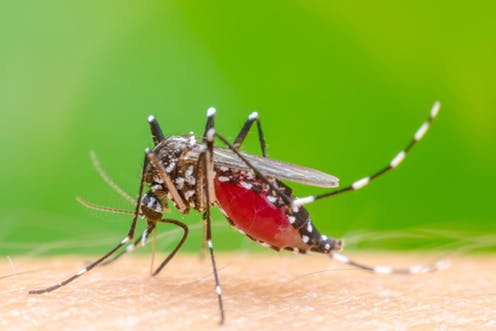By The Conversation
Every year, around one million people die of mosquito-borne diseases according to the World Health Organization (WHO). This is why mosquitoes are considered one of the deadliest living creatures on the planet — not because they are lethal themselves, but because many of the viruses and parasites they transmit are.
Consider, for example, dengue fever. This mosquito-borne virus is a leading cause of hospitalization and death among children and adults in several countries in Asia and Latin America. In 2016, member states in three of the six WHO regions reported 3.34 million cases.
In the absence of an effective vaccine for dengue fever, Zika fever, chikungunya and other mosquito-borne diseases, researchers have developed genetic strategies to reduce mosquito populations. One such strategy involves the release into the wild of genetically modified (GM) mosquitoes that express a lethal gene — a strategy believed to have little impact on the overall DNA of wild populations of mosquitoes.
As an interdisciplinary group of authors, we generally support technologies that can reduce human disease and suffering. However, given our combined expertise in science, governance and ethics we have concerns that recent decisions to deploy GM mosquitoes have not been made responsibly.
Genetically modified mosquitoes
The transfer of new genes from GM organisms to wild or domesticated non-GM populations is a key criticism of GM crops like soybean and corn. There are concerns that the introduction of GM genes into non-target species could have negative consequences for both human and environmental health.
Oxitec, a company that spun out of research at Oxford University in the early 2000s, developed and trademarked GM Friendly™ mosquitoes (also known as strain OX513A of Aedes aegypti). These male GM mosquitoes have what the company describes as a “self-limiting” gene, which means that when these so-called friendly mosquitoes mate, their offspring inherit the self-limiting gene which is supposed to prevent them surviving into adulthood.
In theory, when these mosquitoes are released in high numbers, a dramatic reduction in the mosquito population should follow.



